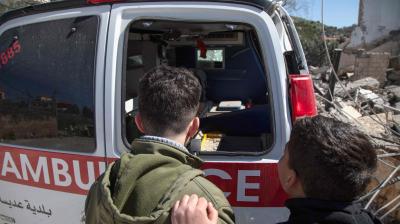Bob Marley status eludes Jamaican Man Booker winner due to gay tag
He’s brilliant and charismatic and should be one of Jamaica’s heroes up there on the pedestal with Usain Bolt and the reggae and dancehall stars who stand in the long shadow of Bob Marley.
He’s brilliant and charismatic and should be one of Jamaica’s heroes up there on the pedestal with Usain Bolt and the reggae and dancehall stars who stand in the long shadow of Bob Marley.
But Jamaica has trouble embracing the novelist Marlon James, even after he won one of the world’s top literary prizes, the Man Booker, last year, the first Caribbean writer to do so since V.S. Naipaul 45 years ago. The reason is simple. “I’m a batty boy,” Mr James said, using the derogatory island slang for gay.
In Jamaica homosexual acts are punishable by up to 10 years in prison. Ragga stars like Buju Banton have called for the murder of gay men, and a string of horrific killings a few years ago prompted rights groups to brand it the “most homophobic place on earth.”
Yet Mr James argues that “Jamaica has come a long way” since. And he hopes the international success of his book, A Brief History of Seven Killings — which turns on an attempted assassination of Marley in 1976 — will help. “It is still a very homophobic country, though it has evolved for the better in a lot of ways,” he said. “Which doesn’t mean I feel totally safe.” When the US-based writer returned in glory earlier this year to give the Bob Marley lecture at his old alma mater, the University of the West Indies, “people were really supportive but there was still a Facebook page saying, ‘Should a homosexual be talking about Bob Marley ’”
“You can imagine what the comments on it were like... The trouble is I know who put up the page. It is somebody who works in the arts, yet she’s still a flipping homophobe, and has no problem inciting hatred.”
“She said at one point, ‘I read the book and I thought it was good, but should this batty boy...’”
What cheered him however, was being invited to talk to the university’s gay student association.
“I was so stunned we had one. Even if there was one I would never have gone,” said Mr James.
Ten years ago, the riot police had to fire on a mob who chased a gay student through the campus, and in 2012 security guards at the island’s University of Technology beat up a man who had sought refuge from a similarly homophobic crowd.
Critics have called Mr James’ book a virtuoso evocation of the dark days of the late 1970s, when rival political factions fought on the streets of Kingston, with the CIA arming gangsters to uns-eat the socialist Michael Manley — who Marley supported.
“Jamaica became another Cold War battleground,” Mr James said, “and as elsewhere the US ended with some very strange bedfellows.”
But rather than stop his story at the failed attempt to kill Marley, who was shot in the arm and carried the bullet to his grave, Mr James — who also wears his hair in dreadlocks — became fascinated with what happened to the gunmen afterwards.
“These men for the most part vanished. There are rumours about what happened to them — who was shot, whose throat was slit, who was hung... Jamaicans made an effort to destroy them and make sure they never existed. Of course that fired my imagination,” James said.
“I had no idea that two people involved in the Marley assassination became instrumental in bringing crack to America. So I followed the gun and murder and drug trail, and the CIA and the Cold War” right to 1991.
“The whole writing of this book was crazy. The very first paragraph that I wrote is now on page 458. I wanted to write something quick, brief and brutal,” he added.
But the book ended up at nearly 700 pages. “It is some crazy shit,” Mr James laughed, “that breaks every rule, so don’t ask me why it works. But it does.”

















